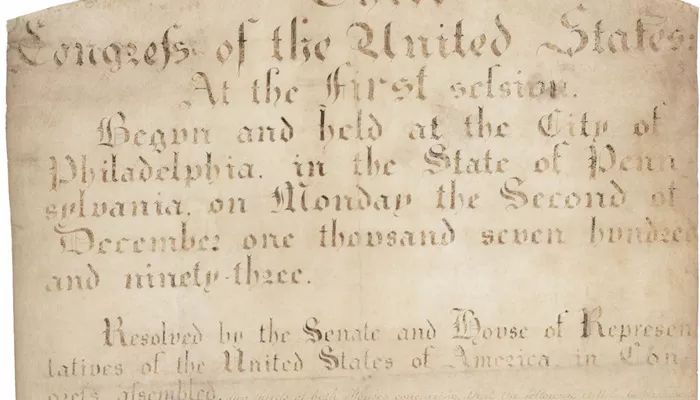February 7 has seen a variety of notable events throughout American history, spanning political milestones, cultural shifts, and significant occurrences that shaped the nation. This article delves into these events in detail, providing a comprehensive overview of their historical context and implications.
What Happened on February 7 in American History?
1. The Ratification of the 11th Amendment (1795)
On February 7, 1795, the 11th Amendment to the United States Constitution was ratified. This amendment was a response to the Supreme Court case Chisholm v. Georgia (1793), which allowed individuals to sue states in federal court. The ratification aimed to limit the power of federal courts over state matters by prohibiting such lawsuits against states by citizens of other states or foreign entities.
The 11th Amendment reflects the early tensions between state sovereignty and federal authority. It was part of a broader effort to define the relationship between state and federal governments in the wake of the American Revolution. The amendment underscored the Founding Fathers’ intent to preserve state power while establishing a federal framework.
This amendment has had lasting effects on American jurisprudence, shaping the legal landscape regarding states’ rights and federal judicial power. It established a precedent that has been referenced in numerous Supreme Court cases concerning state immunity.
2. The Bubonic Plague Epidemic (1900)
On February 7, 1900, a significant public health crisis emerged when a Chinese immigrant in San Francisco became the first person diagnosed with bubonic plague on the continental United States. This event marked the beginning of the first plague epidemic in mainland America.
The arrival of bubonic plague in San Francisco coincided with increased immigration from Asia and growing urbanization in American cities. Public health officials were unprepared for such an outbreak, leading to widespread panic and fear among residents.
In response to the outbreak, city officials implemented quarantines and sanitation measures, although initial efforts were often hampered by racial prejudice against Chinese immigrants. This incident highlighted the intersection of public health and social issues in early 20th-century America.
The plague epidemic prompted significant changes in public health policy and urban sanitation practices across the United States. It also contributed to heightened racial tensions, as fear of disease often translated into discrimination against Asian communities.
3. The Launch of the British Invasion (1964)
February 7, 1964, is famously known as the day when The Beatles arrived in New York City, marking the beginning of the British Invasion in American music. This event not only transformed popular music but also had profound cultural implications.
The Beatles’ arrival came at a time when America was experiencing social upheaval and cultural change during the 1960s. Their music resonated with a generation seeking new forms of expression and rebellion against traditional norms.
The Beatles’ performance on The Ed Sullivan Show just two nights later attracted an audience of approximately 73 million viewers, solidifying their status as cultural icons. This event paved the way for other British bands to gain popularity in America, fundamentally altering the music industry.
The British Invasion not only influenced music but also fashion, language, and youth culture in America. It marked a shift towards greater global interconnectedness in popular culture.
4. Ellen MacArthur’s Sailing Record (2005)
On February 7, 2005, British sailor Ellen MacArthur broke the world record for sailing solo around the globe. Her journey took just 71 days, 14 hours, and 18 minutes, showcasing extraordinary endurance and skill.
MacArthur’s achievement was celebrated not only for its athleticism but also for its representation of women’s capabilities in traditionally male-dominated sports. Her success inspired many young sailors and highlighted advancements in sailing technology.
MacArthur’s record-breaking voyage captured public imagination and brought increased attention to sailing as a sport. It also raised awareness about environmental issues related to ocean conservation through her subsequent advocacy work.
Conclusion
February 7 has been marked by significant events that have shaped American history across various dimensions—political amendments that define governance, public health crises that reveal societal challenges, cultural phenomena that transform entertainment landscapes, and individual achievements that inspire future generations. Each event contributes to our understanding of historical trajectories and societal evolution within the United States.Through examining these occurrences in detail, we gain insight into how past events resonate within contemporary society and influence ongoing discussions about governance, culture, public health, and identity. As we reflect on February 7 throughout history, it becomes clear that this date encapsulates critical moments that continue to inform our national narrative today.
Related Topics:

